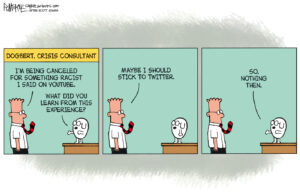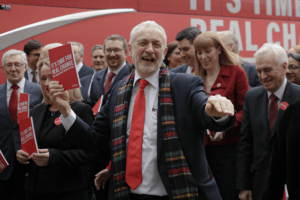Romney and the Go-for-Broke Election
Conservatives and a Republican Party now under their control hope to eke out a narrow victory in November on the basis of a quite radical program that includes more tax cuts for the rich and a sharp rollback in government regulation.Here are the two great campaign mysteries at midsummer: Why does Mitt Romney appear to be getting so much traction from ripping a few of President Obama’s words out of context? And why aren’t Romney and other Republicans moving to the political center as the election approaches?
Both mysteries point to an important fact about the 2012 campaign: For conservatives, this is a go-for-broke election. They and a Republican Party now under their control hope to eke out a narrow victory in November on the basis of a quite radical program that includes more tax cuts for the rich, deep reductions in domestic spending, big increases in military spending, and a sharp rollback in government regulation.
In the process, the right hopes to redefine middle-of-the-road policies as “left wing,” thereby altering the balance in the American political debate.
What should alarm both liberals and moderates is that this is the rare election in which such a strategy has a chance of succeeding. Conservatives have their opening not because the country has moved far to the right but courtesy of economic discontent, partisan polarization and the right’s success in defining Obama as standing well to the left of where he actually does.
The Obama campaign is trying to disrupt this narrative on multiple fronts. Why did Obama respond so quickly and forcefully to Romney’s effort to use the president’s “you didn’t build that” quotation as a way of casting him as an enemy of small business? It’s not that the attack was true. In fact, it was blatantly false, given that in the same speech Obama praised “hard work,” “responsibility” and “individual initiative.”
The words did, however, play to a stereotype of Obama as an advocate of big government who mistrusts business. The distortion resonated, said Bill McInturff, a Republican pollster, because key voter groups that Romney is trying to win suspect the four words reflect “secretly what he [Obama] believes.”
Moreover, Republicans want to recast the Obama campaign’s most effective line of attack — that Romney is a very wealthy out-of-touch financier who “pioneered” the outsourcing of jobs, kept a lot of money in foreign accounts, and refuses to release additional tax returns — as being less about Romney than about the president’s supposed hostility to “success” and to business. Much is riding on the interpretation (or willful misinterpretation) of a short sentence in a long speech.
The go-for-broke strategy has a chance for another reason: In this election, the number of genuine, middle-of-the-road swing voters is very small. For both candidates, this puts a premium not only on high turnout among party base groups but also on very large victory margins within them. McInturff thinks we may be moving from an electoral model based on swing or undecided voters to a world of what he calls “committed versus elastic” voter groups.
For example, it is widely agreed that white working-class voters will support Romney. But much depends upon Romney’s margin among them. If Obama holds Romney’s lead in the white working class to around 15 points, he likely wins. Romney can win if he pushes his advantage with these less well-off voters to 25 points or more. Obama’s Bain/tax returns offensive against Romney is aimed directly at this constituency.
Similarly, Romney will lose the Latino vote by a landslide. But holding his deficit to, say, 30 points instead of 40 will matter. And by portraying Obama as anti-business, McInturff said, Romney could gain ground among college-educated white men. In the pollster’s terms, what matters is the “elasticity” in all these constituencies.
The potential flaw in the conservative strategy could turn out to be reality itself. Obama’s actual record is neither left wing nor anti-business. Public opinion is strongly hostile to many items on the conservative agenda. Most voters, for example, reject the idea that more tax cuts for the wealthy are central to future prosperity. Much of the domestic spending that Republicans would reduce has strong support, one reason Romney avoids budget specifics.
Republicans want to play down the implications of what they would do in power and paint Obama as someone he isn’t. Normally, this strategy wouldn’t work. But this is a moment when abnormal levels of economic turmoil are feeding a profound mistrust of government. Conservatives are making a large bet that if ever there was a year when they could mainstream out-of-the-mainstream ideas, this is it.
E.J. Dionne’s e-mail address is ejdionne(at)washpost.com.
© 2012, Washington Post Writers Group
Your support matters…Independent journalism is under threat and overshadowed by heavily funded mainstream media.
You can help level the playing field. Become a member.
Your tax-deductible contribution keeps us digging beneath the headlines to give you thought-provoking, investigative reporting and analysis that unearths what's really happening- without compromise.
Give today to support our courageous, independent journalists.






You need to be a supporter to comment.
There are currently no responses to this article.
Be the first to respond.